KATHMANDU: Senior leader of the Nepali Congress (NC) and former Speaker Ram Chandra Paudel has been elected President through a vote on Thursday.
He was born to the parents- Hrishi Maya and Durga Prasad Paudel at Mirlung Bahunpokhara of Tanahun district (presently Vyas Municipality -8, Risti) on 14 October 1944.
Poudel currently resides at Boharatar, Balaju Height in Kathmandu.
Born to a middle-class agrarian family, Poudel is married to Sabita Paudel and is father to four daughters-Sharmila, Sangyan, Anugyan, Abagyan, and a son –Chintan Paudel.
The President-elect holds a MA degree from Tribhuvan University in 1970, and earned Bachelors in Sanskrit (Shastri) from Valmiki Vidyapeeth, Kathmandu in 1967.
Similarly, his school education (SLC) was completed from Nandiratri Secondary School, Naxal, Kathmandu in 1963 and IA from Saraswoti College, Kathmandu in 1966.
The president-elect has had a very significant social and political career.
He was the founder secretary of the Himalayan Chhatra Sangh; chairperson, secretary and executive member of Nepal Students’ Union from 1960 to 1967.
Leader Paudel was detained again in 1988 for three months on charges of violating the Printing Press and Publication Act with the publication of organizational information of various departments and chapters of Nepali Congress.
He involved in the Student Union campaign as the general secretary of the Nepal Sanskrit Students’ Association and participated in the Kathmandu Conference in 1962.
He was founder president of the Gandaki Chhatra Sangh in 1966. Paudel also served as founder general secretary of the Democratic Socialist Youth League in 1967.
He had active involvement in the Jayatu Sanskritam Aandolan, a campaign for truth, social justice, and cultural reform; played a lead role in students’ movement through Nandiratri Students’ Union; Ranipokhari Madhyamik Bidhyalaya’s Students’ Union and others from 1985 to 1967.
Under the leadership of Paudel, Nandiratri Secondary Student’s Association and the Ranipokhari Secondary Student’s Association were established and students of different 22 schools gathered at Judhodaya High School and led the movement demanding an independent student union.
He was inspired to join the democratic movement since an early age of 15 against coup d’etat that dissolved the first popularly elected parliament and jailed the leaders including Prime Minister BP Koirala on 15 December 1960.
Moreover, the President-elect Paudel was affected much by the unconstitutional dissolution of parliament and the dismissal of the duly elected government led by BP Koirala in December 1960.
Then he decided to involve in the movement for the restoration of democratic rights in the early age of 16.
Associated with the Armed Insurrection Movement for the restoration of democracy and siege of Bharatpur/Chitwan in 1961, he initiated Free Students’ Movement in 1962, and was elected president of the Saraswati College Student Union in 1966; elected as a founder president of the Gandaki Student Committee in 1966; and elected as the general secretary of the Democratic Socialist Youths League (DSYL) in 1967.
He played vital role in organizing Nepal Students Union in 1970 and was elected as senior member of the Union Committee.
Moreover, Paudel was elected as a member of the Nepali Congress Tanahun District Committee in 1977; vice-president of the Nepali Congress Tanahun District Committee in 1979; and elected as a president of the Tanahun District Multi-Party Campaigning Committee in 1980.
Likewise, leader Paudel was assigned as a coordinator of the Nepali Congress’ Central Publicity Committee in 1983, and appointed as a member of the Central Committee of the Nepali Congress.
He became Chief of Central Publicity Department of the party in 1987.
Leader Paudel was elected as a Member of Parliament from Tanahun constituency no 1 in 1991 and served as the Minister for Local Development and Agriculture from May 29, 1991 to 1994. For the second time, he was elected as a Member of Parliament from Tanahun constituency no 2 in 1994 and elected the Speaker of House of Representatives in 1994 and served until 1998.
He became the Deputy Prime Minister and Home Minister since 1999 to 2002. Moreover, he was named the coordinator of Peace Secretariat that included representatives from top political parties from 2006 to 2007 and served as Minister for Peace and Reconstruction from 2007 to 2008.
Elected as the general secretary of the Nepali Congress in 2006 and the vice-president in 2007, he again became Member of Constituent Assembly from Tanahun constituency no 2 in 2008.
Paudel’s political career continued to rise, as he was elected as a parliamentary party leader of Nepali Congress in 2008.
He became vice president of Nepali Congress after being elected as central working committee member of the party from the 12th general convention of the party in 2009.
He also got opportunity to serve as acting president of the Nepali Congress after the demise of leader Sushil Koirala.
Similarly, he was elected as a Member of Constituent Assembly from Tanahun constituency no 2 in 2013, and a Member of Parliament through the 2022 general elections.
In course of his long political career, Paudel faced harassment at the hand of the State. In 1962, he was arrested in Kathmandu and sentenced to nearly one-month detention for the first time on charges of helping the Bharatpur siege in course of the armed struggle launched by the Nepali Congress.
In 1964, he was detained for one year in connection with the students’ movement in Kathmandu.
In 1966, he was detained for about six months when he protested the ousting of the then DIG of Nepal Police.
The series of arrest and detention continued. In 1967, he was arrested and detained in Pokhara for 14 months on charges of being involved in the activities of the Democratic Socialist Youth Association.
Later, he was imprisoned in Kathmandu for one year. In 1970, Paudel was detained for three months in Kathmandu on charges of leading the establishment of the Nepal Student Union and launching the union.
From 1971 to 1975, Paudel was detained for four years for his involvement in various activities of the student movement after the release of deposed Prime Minister BP Koirala from Sundarijal Jail.
Paudel was charged of taking part in a protest programme against the Ramailo Jhoda Scandal (Morang) held in Kirtipur and kept in prison for four years from 1971 to 1975.
In the Ramailo Jhoda incident, some of the squatters were killed when the police opened fire to forcefully evacuate the squatter dwellers, who were living in Ramailo Jhoda in Morang district.
Despite the arrest and detention, Paudel did not give up his political zeal and struggle for democracy.
In 1977, he was arrested and detained for 10 months for being active in the 1977 Patna Conference of the Nepali Congress.
Dozens of essays and critical writings are also published in Nepal’s national daily, weekly, monthly and online media portal on various topics ranging from democracy, democratic socialism, role of political party for democracy, multi-party system, and contemporary issues.
From this conference, the Nepali Congress had made a decision to hold a disobedience (Satyagraha) movement for the end of panchayat and the restoration of democracy. His activism following the conference led to arrest and detention for six months-during which he was active in the campaign to secure victory of the multi-party system during the referendum.
For boycotting the National Panchayat, District Panchayat and Village/Nagar Panchayat elections, Paudel was arrested and detained for six months in 1981.
The Nepali Congress had decided to boycott these elections. In 1985, he was arrested and sentenced for nine months on charges of being active in launching the second campaign of disobedience (Satyagraha) – the campaign was carried out by the Nepali Congress for the end of panchayats and the restoration of democracy.
Leader Paudel was detained again in 1988 for three months on charges of violating the Printing Press and Publication Act with the publication of organizational information of various departments and chapters of Nepali Congress.
After then King Gyanendra Shah assumed direct rule in 2059 BS, leader Paudel was put under house arrest and detained in 2002.
He faced arrests for several times and was kept under house arrest during the second janaandolan, people’s movement, 2062/2063BS.
During the ministerial stints, Paudel prepared various plans, action plans and policies for local development, agriculture and self-employment. He was honored with various awards related to human rights.
He received the Mahendra Bikram Shah Award (Rs. 10,000). Mahendra Bikram Shah is the Founder of Nepal Prajatantra Congress and a former minister.
Importantly, the President-elect was decorated with the State Honor “Order of the Rising Sun” by the Japanese Government in 2020. Paudel has also written some books, booklets and several newspaper articles.
A Brief History of Nepali Congress; Democratic Socialism: A Study; What does the Nepali Congress View; Journey of Faith (Political Analysis); Agrarian Revolution and Socialism; and the Ways of Transforming Nepali Congress are the book under his name.
Playing the mediating role in the historic negotiations and consensus to bring the then rebel Maoist Party into mainstream politics, he is also regarded as a significant drafter of the 12-Point Consensus, and the Comprehensive Peace Agreement, that formally ending the 10-year-long armed conflict in 2006.
Dozens of essays and critical writings are also published in Nepal’s national daily, weekly, monthly and online media portal on various topics ranging from democracy, democratic socialism, role of political party for democracy, multi-party system, and contemporary issues.
Even the poems and essays on prison life were written and published by the President-elect.
The President-elect has visited India, China, United States of America, Germany, United Kingdom, Spain, Belgium, Italy, Turkey, Russia, Egypt, Israel, the Maldives, South Korea, Japan, Thailand, Pakistan, Bangladesh, Sri Lanka etc. and all districts of Nepal.
Popular Congress leader BP Koirala inspired him to continue involvement in the democratic movement.
When Koirala was released from jail, it was the first time leader Paudel met him.
The President-elect is known as a socialist thinker and experimenter. Down-to-earth, with high thoughts, Paudel is a leader of a clean image.
He is an eloquent speaker and ardent advocate of democratic socialism. Within the Nepali Congress, Paudel is known as a political mediator and coordinator.
Playing the mediating role in the historic negotiations and consensus to bring the then rebel Maoist Party into mainstream politics, he is also regarded as a significant drafter of the 12-Point Consensus, and the Comprehensive Peace Agreement, that formally ending the 10-year-long armed conflict in 2006.
Bhishma Raj Ojha/RSS


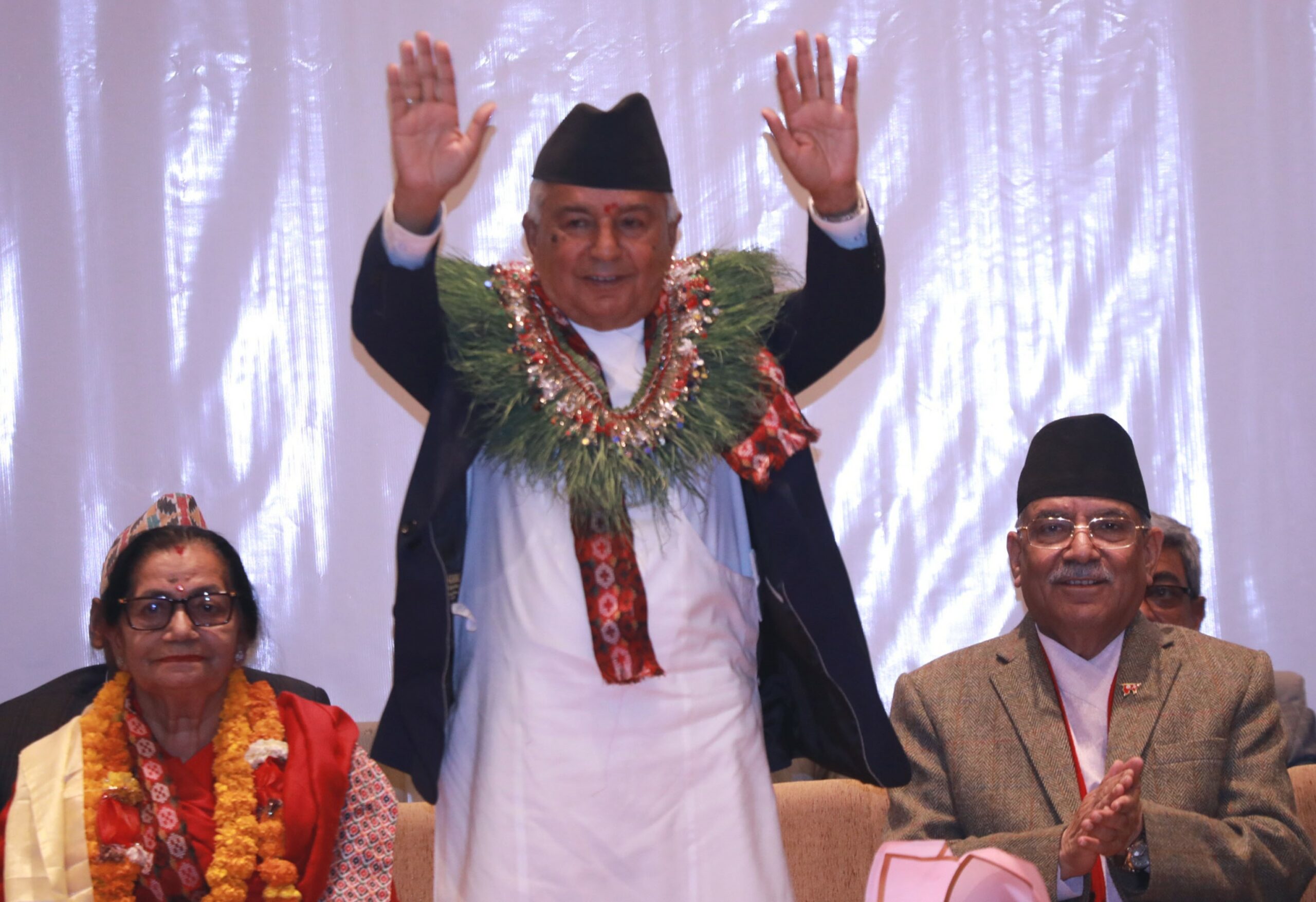

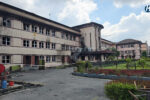
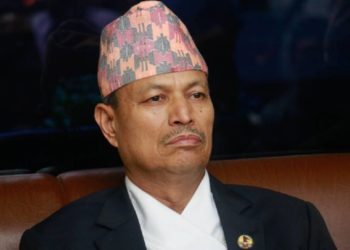
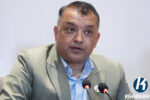
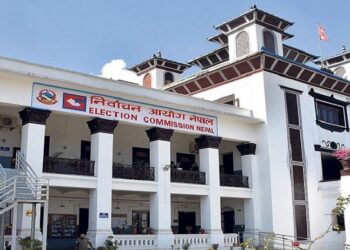

Comment